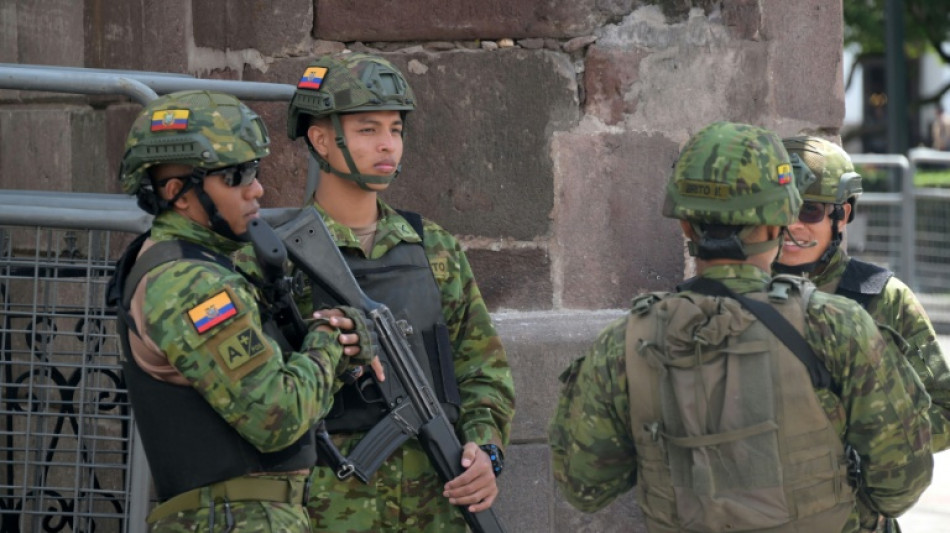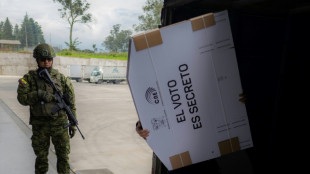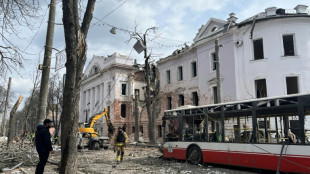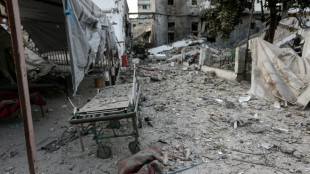
From Freddy Kruegers to Peaky Blinders: a look at Ecuador's drug gangs

Ecuadorans go to the polls on Sunday under the shadow of surging drug violence and a troubling explosion in the number of local gangs and mafias.
A flood of cocaine from Colombia and Peru through Ecuadoran ports has drawn a who's who of mafias from Albania to Italy to Mexico to this once-safe Andean nation.
But it has also created a plethora of homegrown groups with striking names and ferocious reputations.
"Los Freddy Kruegers" cause nightmares in the streets, "The Ugly Women's Headquarters" run jails and "The Peaky Blinders" try to rule the waves of a key coastal zone.
Together they and numerous other groups terrorise citizens through campaigns of extortion, kidnap and murder.
In January and February, Ecuador recorded more than one death every hour, according to figures from the Interior Ministry.
The mafias "have been gaining space; it is complex to combat them," admits Guayaquil's police commander, Pablo Davila.
The situation has put security at the center of Sunday's presidential runoff between incumbent Daniel Noboa and leftist candidate Luisa Gonzalez.
One merchant remembers the day a bomb exploded in her restaurant in Guayaquil, the economic and crime capital of the country.
"They said they were from the mafia. They demanded $15,000 not to kill us," the woman, who asked not to be named for her safety, told AFP.
Many local gangs have teamed up with much larger cartels from Mexico and Colombia, as well as Albanian and Italian mafias.
But the local gangs have also fractured and proliferated as they look for their own ever-bigger piece of the pie.
"The war is over territory. There aren't known leaders like before. Everyone wants their independence," said the head of one gang on condition of anonymity.
The situation is causing serious headaches for Ecuadoran security services, who must now gather intelligence and act against an ever-changing panoply of actors.
Security expert Carla Alvarez compares the situation to the chaos of 1990s Colombia.
"We see an association of small, less rigid groups. This already happened in Colombia in the 1990s after the death of Pablo Escobar," she said.
In Ecuador, hierarchies began to break in 2018 when one of the largest organizations split.
The death of "Choneros" leader Jorge Luis Zambrano in 2020 left a power vacuum.
The impact is now felt even in relatively safe Quito, once a haven from drug violence, but increasingly on the front lines.
There, restaurant employee Marianela receives threats and extortion via WhatsApp. "I block them," she said.
But there is no ignoring the violence on the streets of her Martha Bucaram neighborhood.
Police and military regularly appear, hunting for weapons and drugs. "There were about two dead here on the corner," she said, recalling a recent shootout.
Carolina Andrade, a municipal security secretary, admits that without the security presence of hard-hit Guayaquil, the capital is seen as "a safe space to come and hide."
As new alliances and actors emerge, there may be worse to come.
Multiple smaller gangs are now trying to join "larger organizations to have greater presence, legitimacy, and territorial control," Andrade said.
D.Petit--PS

 London
London

 Manchester
Manchester
 Glasgow
Glasgow
 Dublin
Dublin
 Belfast
Belfast
 Washington
Washington
 Denver
Denver
 Atlanta
Atlanta
 Dallas
Dallas
 Houston Texas
Houston Texas
 New Orleans
New Orleans
 El Paso
El Paso
 Phoenix
Phoenix
 Los Angeles
Los Angeles


